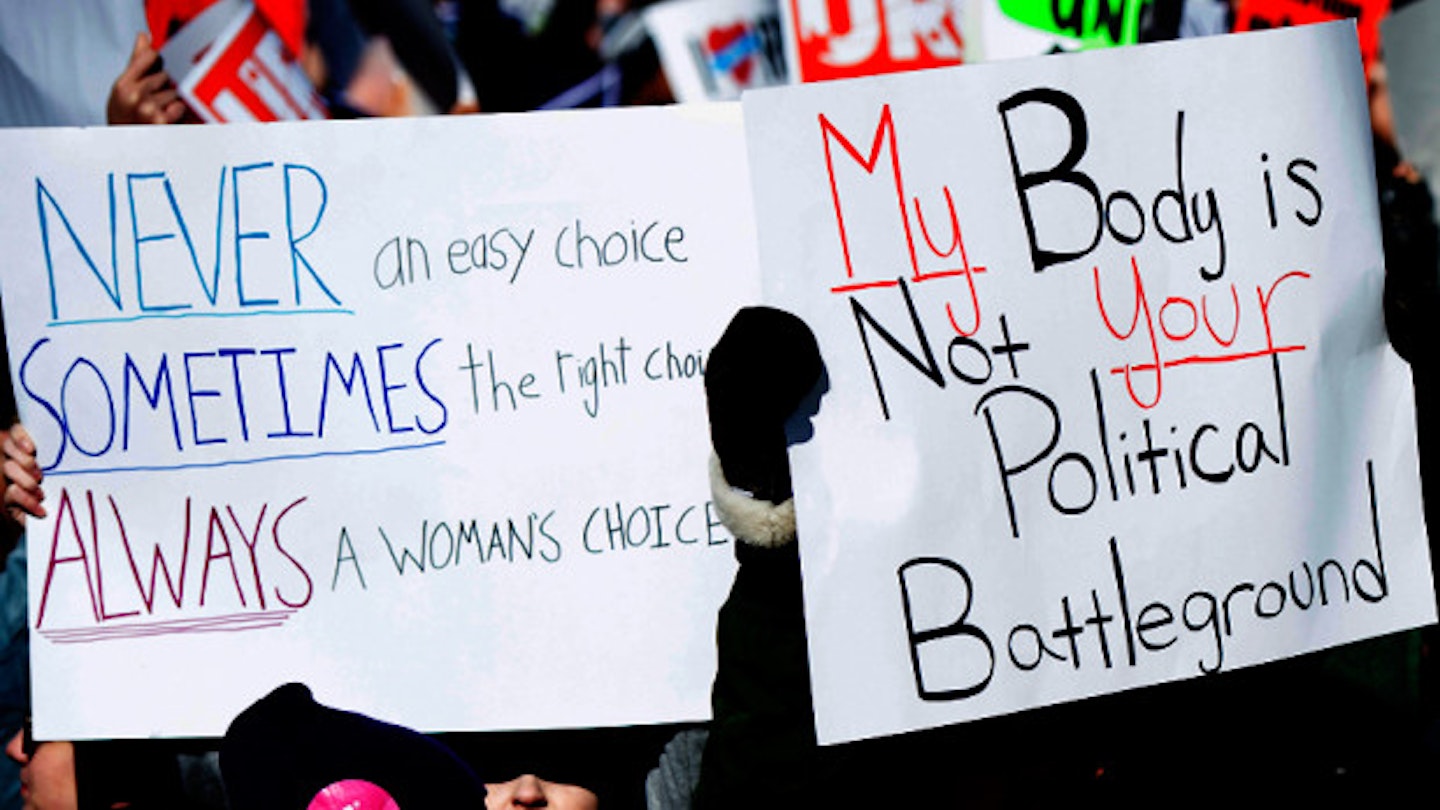Last year the people of Ireland voted on same-sex marriage in May and came out in favour. It was a powerful and progressive statement. Yet, according to the Department of Health, in the last five years, close to 25,000 pregnant women have travelled from Ireland to Britain in order to receive abortions.
Northern Ireland is the only part of the United Kingdom where the 1967 Abortion Act does not apply. Across Ireland as a whole abortion is completely illegal because of a law which is, quite literally, Victorian. The act of terminating a pregnancy is a criminal offence, enshrined in a law dating back to 1861 called the Offences Against the Person Act. Yes, 1861: over 100 years ago, was a time before the welfare state existed, before the NHS, before the invention of electricity or the discovery of penicillin.
This week, a 21-year-old Northern Irish woman was handed a suspended sentence for trying to administer herself an abortion in the country because she could not afford the trip to England to seek a legal, medical abortion. Her housemates contacted police 8 days after she induced a miscarriage using drugs bought online. The court head that the young woman had confided in her housemates that she could not cover the costs of travelling to England for a termination.
She pleaded guilty to ‘using a poison with the intent to induce a miscarriage’ (poison is also known, when not in an archaic court of law, as mifepristone and misoprostol) and was given a three-month sentence, suspended for two years.
Her barrister pointed out to Belfast crown court that if his client had lived anywhere else in the UK, she ‘would not have found herself before the courts’ because she would have been able to obtain an abortion legally.
An offence under section 58 of the Offences Against the Person Act is punishable by anything up to life in prison and in Ireland, anyone who carries out an abortion (except under limited circumstances where there’s a health risk) can face up to 14 years in prison.
Pressure from pro-choice campaigners is now mounting in the country after a Northern Irish woman was prosecuted last year in Derry for obtaining abortion medication for her pregnant, underage daughter. Ordering pills online is one of the only available options to women in countries where abortion is illegal. Sites like Netherlands-based Women on Web help women to get hold of the pills for early medical abortion for as little as £50. Women are given an online consultation with a licensed doctor before the medication is provided.
The pills used in an early termination are mifepristone and misoprostol and can be found on the World Health Organisation’s ‘essential medicines list'. In England, as things stand, you could argue that early abortions are not as easy to obtain as they ought to be. There are still many women who can’t access abortions form the NHS and waiting periods are cause for concern.
Abortion pills are now used for most abortions in England and Wales, according to Department of Health figures. For the first time last year, more women terminated pregnancies by taking a pill and had an early abortion than by having a surgical procedure. The pills needed are now also increasingly available online, without going through a doctor.
As Abigail Fitzgibbon, head of advocacy and campaigns at the British Pregnancy Advisory Service told The Debrief this actually means that women are potentially, unknowingly, procuring pills in England to give themselves abortions which are technically illegal. Last December, a woman was jailed for two and a half years in Shildon, County Durham after trying to terminate her own pregnancy.
The 1967 Abortion Act, legalised abortion under certain conditions in England. However, it did not over turn the 1861 Act, it only made abortion lawful if two doctors could agreethat continuing with a pregnancy would affect a woman’s mental or physical health.
While it’s very rare for abortions to be denied here the implication that two medical professionals must agree on a woman’s decision to seek abortion implies that women can’t be trusted to make decisions about their own bodies or health.
Abigail notes ‘its totally unacceptable that this young woman has been forced into such a position in Northern Ireland. However, we have to be clear that if she had done what she did in England she would have been liable for prosecution as well. What politicians in Northern Ireland and elsewhere in the UK – England, Wales and Scotland - need to acknowledge is that women in the 21st Century deserve a law that meets their needs, not reflects Victorian values. We need to make very clear that the legal framework across the UK is outrageous.’
She went on to say, ‘hypothetically if there was a young woman in rural Wales who was several hours away from her nearest clinic and she bought drugs online then she could find herself in the same position.’
It’s 2016 and the characterisation of women as not being capable of making decisions about their own bodies, on the basis of informed consent, when it comes to pregnancy is ridiculous. We don’t need two doctors to sign off on early abortion which is within the recommended limit, as it stands, and no woman should be given a criminal record for something which should not be illegal in the first place.
Currently the UK is trailing behind countries like Canada and Australia where abortion has been completely decriminalised. Our abortion laws are outdated and it’s high time they caught up, they are also at odds with public opinion.
You might also be interested in:
'Arrest Me Or Change This Law' Says Young Woman Who Ordered Abortion Pills Online
Abortion Is Illegal In Brazil: That Doesn't Mean It's Not Happening
Follow Vicky on Twitter @Victoria_Spratt
This article originally appeared on The Debrief.
